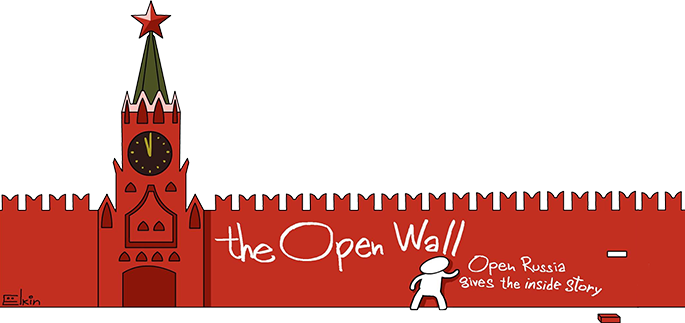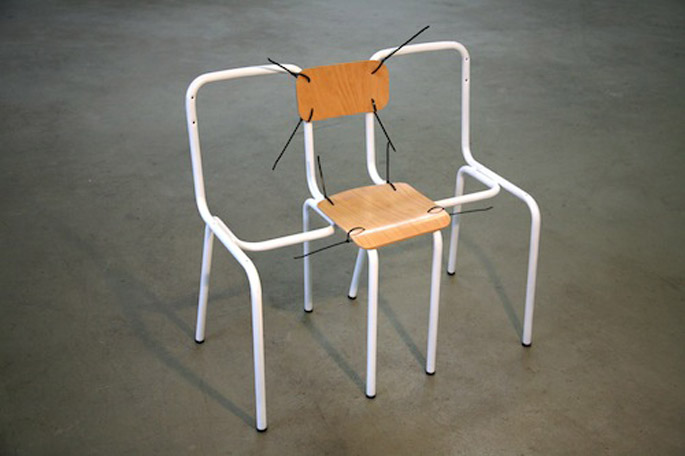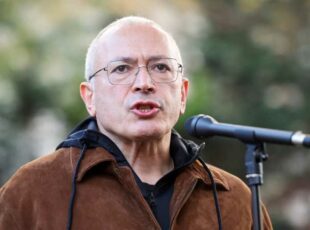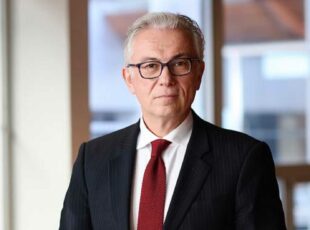We can sit on two stools at once, apparently

We can sit on two stools at once, apparently
Many Russians agree with Mikhail Khodorkovsky that Russia has witnessed an anti-constitutional coup. And yet many of them still support Vladimir Putin…

Many Russians agree with Mikhail Khodorkovsky that Russia has witnessed an anti-constitutional coup. This emerged in a poll by Levada Center, published on 26 January, when 31-42% of those asked, supported Mikhail Khodorkovsky in his opinion that power had been seized by corrupt officials; in effect, a “silent anti-constitutional coup.”
Interestingly, half of the respondents were told who had expressed these opinions, and half were not. Those who were not told were much more likely to agree: 11% of respondents were in complete agreement and 31% “would be more likely to agree.” Among those knowing that the views belonged to Khodorkovsky, only 5% were in complete agreement, and 26% were more likely to agree than not.
Mikhail Khodorkovsky made his statement about the anti-constitutional coup in December 2015.
“Putin no longer has any regard at all for the Constitution, rather as one would cease to take account of an elderly relative who has lost her marbles. Substantive restrictions have been introduced on the freedom of assembly, of the press, and the right to privacy. This has all been under the pretext of doing battle with external (less often internal) enemies … The Kremlin has totally renounced the Constitution as Russia’s chief legal statute. A coup has taken place, although no press secretary from the Kremlin has made any announcements about it. The president and his circle have thus virtually unlimited opportunities to make use of public money. They do so to pay for loyalty, to make war, for megaprojects and, finally, many of them simply trouser it.”
Russians, then, if we are to believe the pollsters, appear to be aware of what is going on with their corrupt politics. Yet in the same month that many agreed with Khodorkovsky, 85% of Russians, also polled by Levada, supported what Putin is doing.
How is it possible to hold two contradictory positions at the same time? Aleksey Grazhdankin, deputy director of Levada, considers that either Russians fail to make the link between the level of corruption in the country and an evaluation of what the president does, or they do not regard the theme of corruption as so important. The president is pictured sitting somewhere on a throne (or stool…) above the government institutions, rather than as an integral part of the political system in Russia; and is certainly not linked with the corruption, which infects the power vertical.
Pro-Kremlin mouthpieces nevertheless took exception to the Levada poll. Political scientist Gleb Kuznetsov huffed that “the question is formulated in a manipulative way,” suggesting that this pre-determined the response.
Another pro-Kremlin voice, “Ridus,” wrote that “set against the headlines in several media outlets to the effect that ‘50% of Russians support Khodorkovsky,’ is the view that now more than ever Russian political sociology is forming, rather than studying, public opinion.” Aah yes, which probably explains why the Kremlin is so obsessed about opinion polls.
But what responses Russians give, are dependent on their sense of security – or lack of it.
Another, earlier, Levada Center survey showed just how much Russians are afraid to express their views. One in four respondents was unwilling to reveal a position in any kind of social survey; 23% stated that they were afraid to say what they thought to colleagues; and 17% would not even talk about events within the family circle.
Political scientist Konstantin Kalachov explains why: “In an atmosphere of fear there cannot be any alternative views. That the minority opinion receives no attention is a special feature of our political culture. Many people feel very uncomfortable in the minority – it’s much simpler to respond in a socially acceptable way, which is what, in their opinion, is wanted of them. They think one thing, say something else and do something different from either.”
All of which suggests that we really need to update that Russian proverb to suit the times we live in: “Today, we can sit on two stools at once.”



